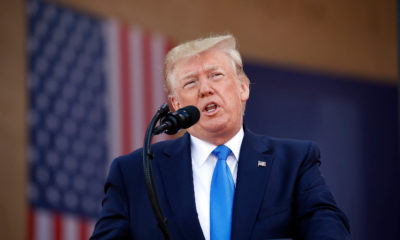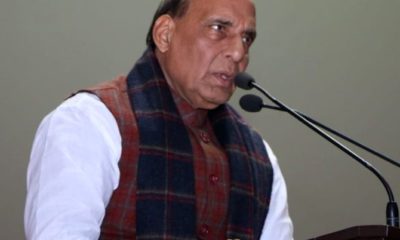World
Cuba, US to hold last meet before Trump takes office
 Havana: Cuba and the US on Wednesday will hold the final round of talks on political and economic ties before President-elect Donald Trump assumes office next month.Delegations from both the countries will gather here for the fifth meeting of a bilateral commission to normalise ties, Cuban Foreign Ministry as saying on Tuesday.
Havana: Cuba and the US on Wednesday will hold the final round of talks on political and economic ties before President-elect Donald Trump assumes office next month.Delegations from both the countries will gather here for the fifth meeting of a bilateral commission to normalise ties, Cuban Foreign Ministry as saying on Tuesday.
The delegations “will discuss the results achieved since the creation of the bilateral commission in August last year as a mechanism for normalising ties between the two nations”, the ministry said.Both the sides will define “new steps” for the following weeks to continue strengthening ties.”The bilateral agenda includes a high-level visit, new cooperation agreements in areas of common interest, as well as technical meetings and talks on various issues,” said the ministry.
The meeting comes on the heels of Cuban revolutionary leader Fidel Castro’s death and Trump’s recent remarks to the effect that he will reverse the historic rapprochement between the US and Cuba, which is considered to be the main legacy of outgoing President Barack Obama.”If Cuba is unwilling to make a better deal for the Cuban people, the Cuban-American people and the US as a whole, I will terminate deal,” he said.
While the US-led trade embargo against Cuba remains in place, the Cold War-ties have thawed in the past two years with increasing exchanges between the two governments and peoples, and relaxing certain restrictions. The two countries in 2015 restored diplomatic ties and reopened their respective embassies.
World
Lockdowns in China Force Urban Communities to Defy Censorship and Vent Frustration Online

Shanghai’s rich middle class is leading a wave of online dissent over the strict and prolonged lockdowns imposed in various parts of the country. Chinese internet censorship is struggling as patience is wearing thin in many urban centers, coming up with creative forms of online protests.
Social Media Posts Revealing Lockdown Tension in Shanghai
Drawn-out lockdowns are nothing new in China as authorities insist with the nation’s zero-Covid policy since the start of the pandemic. Currently over This time around, however, metropolitan areas like Shanghai are increasingly difficult to keep quiet, given that its more than 25 million residents have seen weeks of total isolation along with food shortages and many other service interruptions.
Dozens of towns and reportedly over 300 million Chinese citizens have been affected by lockdowns of different severity. As expected, urban netizens have been most outspoken over their difficulties by finding creative ways to get around state censorship and bans placed on topics, news comments and spontaneous campaigns.
Shanghai residents have been using mobile proxies and hijacking seemingly unrelated hashtags to talk about healthcare issues, delivery failures and the overall severity of their situation. The “positive energy” that the Chinese government wants to transmit during the recent prolonged series of lockdowns does not come naturally to those counting food supplies and online censors are working hard to filter words, trending topics and undesired social media sharing.
WeChat groups and message threads are under constant monitoring. Posts questioning the zero-Covid approach have been quickly deleted, including by leading Chinese health experts like Dr. Zhong Nanshan. Video footage is soon censored and protests and investigations are quickly made to disappear.
Where this has not worked, officials have exposed banners with warnings and outright threats like “watch your own mouth or face punishment”, while drones have been patrolling the city skies. Yet, if anything, this has led to further tensions and unspoken confrontation with Shanghai’s educated and affluent middle class.
Creative Online Solutions Harnessing Civic Energy
Announcements by Chinese social media that they would be publishing the IP addresses of users who “spread rumors” have not helped either. Tech industry research has shown that much of Asia’s tech-savvy population has a habit of using mobile proxies and other privacy tools, quickly finding workarounds to browse the internet freely and talk to the world about the hottest topics.
The sheer volume of forbidden posts is already a challenge for the very censorship system, experts explain. Unable to track all trending hashtags, state workers overlook topics that speak about the US, Ukraine or other popular news. Linking human rights elsewhere to their situation, Chinese online dissidents establish their informal channels and “hijack” the conversation to share personal or publicly relevant information about the Covid suppression in their town.
Sarcastic and satirical posts still dominate. Others hope to evade the censors by replacing words from famous poems or the national anthem. One thing is certain – social media, when harnessed with the right creativity, has proven its ability to mount pressure on the government in even some of the most strictly controlled tech environments like China.























